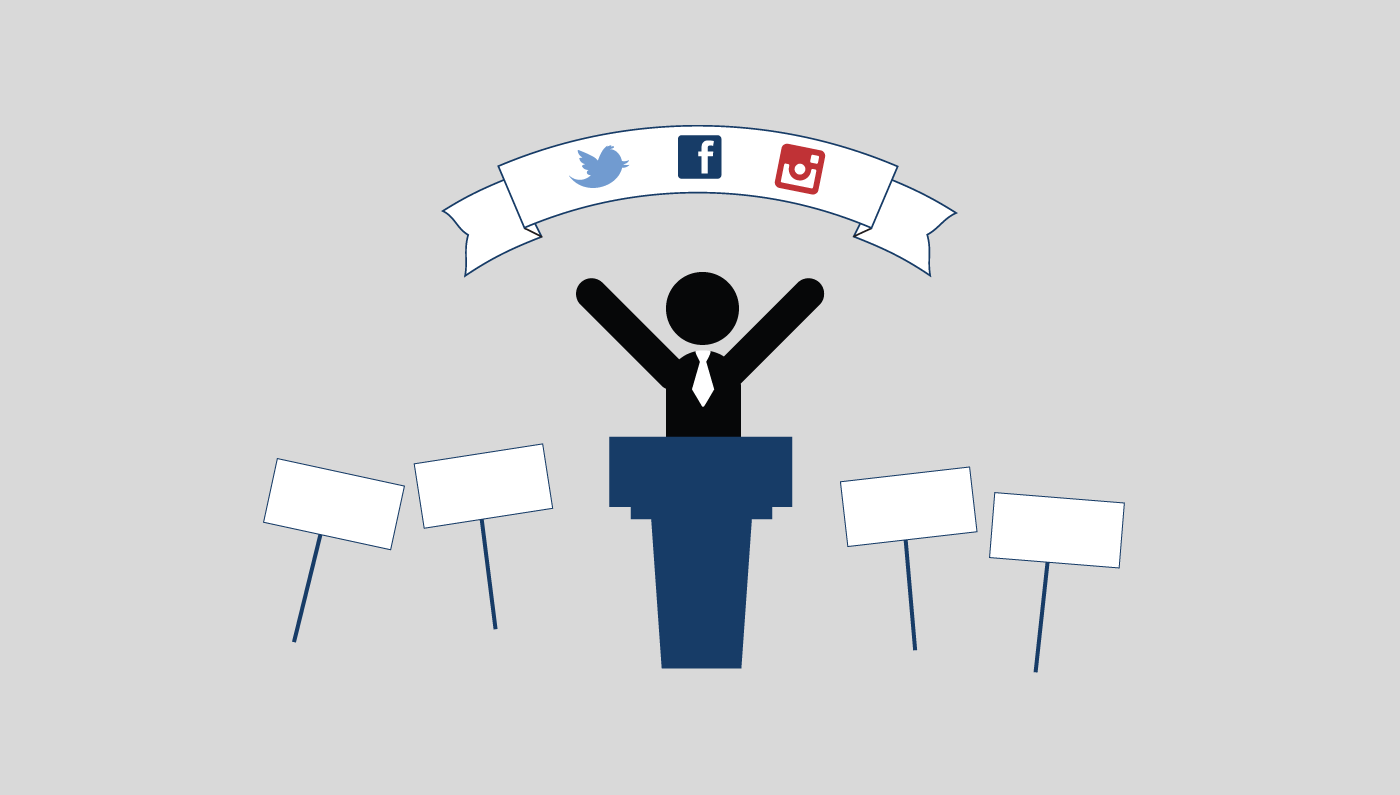Politicians have always used their ability to connect with the public on a social and personal level as a campaigning tool. Now, with the rise of social media in the United States, politicians can communicate to the public on a larger scale with minimal effort. This is a dramatic shift in society that yields both key benefits and challenges. Let’s take a look at how social media has changed how campaigns operate and politicians connect to voters—and what lessons we can learn to improve our own social media prowess.
In the past, the mark of a good president was their ability to communicate with regular people. For example, John F. Kennedy and Ronald Reagan are held in high esteem for their ability to reach out to the public. In fact, JFK led one of the most social presidencies in history. Part of this was due to his family being constantly in the public eye and rampant speculation about his love life. People were interested in more than just the way he governed the country.
Reagan, the “Great Communicator”, is recognized for using simple language that the public could understand. Part of his success can be credited to targeting the younger generation, a strategy that’s still vital today.
But what would have their presidencies have looked like if they had had access to the power of social media?
To get an idea of how social media has transformed the presidency, just look at modern leaders like Barack Obama. While campaigning, Obama appealed to the younger generation of voters by tapping into the way they naturally communicated. Using social media, he positioned himself as a forward thinker and redefined what it meant to run for president. Since his election, his adept use of social media—from an active Twitter and Facebook presence to joking around with online memes—has made him our first “social” president.
While JFK and Reagan’s speeches are remembered as their greatest assets, politicians today turn to social media to become humanized and approachable as a way of connecting with voters. They’re no longer distant or unreachable or forced to rely upon “big speeches” to reach the public. And unlike press releases, which are often insincere, the public is inclined to think social media comes straight from the source. It’s not that social media use is necessarily more sincere than other forms of communication, it just appears that way.
For example, when Donald Trump tweets something controversial about Hillary Clinton, people tend to think it came from him rather than a third party. Although this is the public’s perception, it’s likely that these politicians have staff dedicated to social media strategy.
Voters also become highly engaged with these political figures when they reply to tweets, comment on Instagram images, or share Facebook posts. This is the first time many voters have had the chance to utilize such a direct route of communication with their elected representatives. Anyone with a Twitter account can tweet at the president. There’s no guarantee he will see it, but there is value in knowing that your thoughts are being seen on a Twitter feed by someone, somewhere.
A negative element to this emerging trend is the tendency of social media to distract people from what’s most important when evaluating political candidates. Donald Trump is a prime example of this problem. He has a fantastic PR team that knows his target audience and appeals to them using social media. The social position he takes completely works to his advantage. This isn’t necessarily good for politics in general, however, because voters get caught up in the social hype and forget how serious the president’s job is.
Hillary Clinton also uses social media to her advantage, but as a supplement to a focused campaign instead of a distraction. Recently, pop star Katy Perry took over Clinton’s Instagram account when she appeared at a fundraiser in Iowa. She used #ImWithHer to make her support undoubtedly clear. Clinton strategically embraces the power she holds as a female candidate. Katy Perry is a strong female who’s never afraid to embrace her sexuality or speak her mind. Capitalizing on her social following was a brilliant move on behalf of the Clinton campaign.
At the rate social media is developing now, we should all get used to a strong political presence on our news feeds. Whether it’s good or bad for the nation, it is a trend society cannot ignore. And it might just lead to some unexpected new political candidates, as politicians are increasingly expected to be involved with celebrities and pop culture. Rapper Kanye West even announced at an awards show that he plans to run for president. People with a large social media following already have the public’s attention—how many of them will use it to capture the public’s votes?

